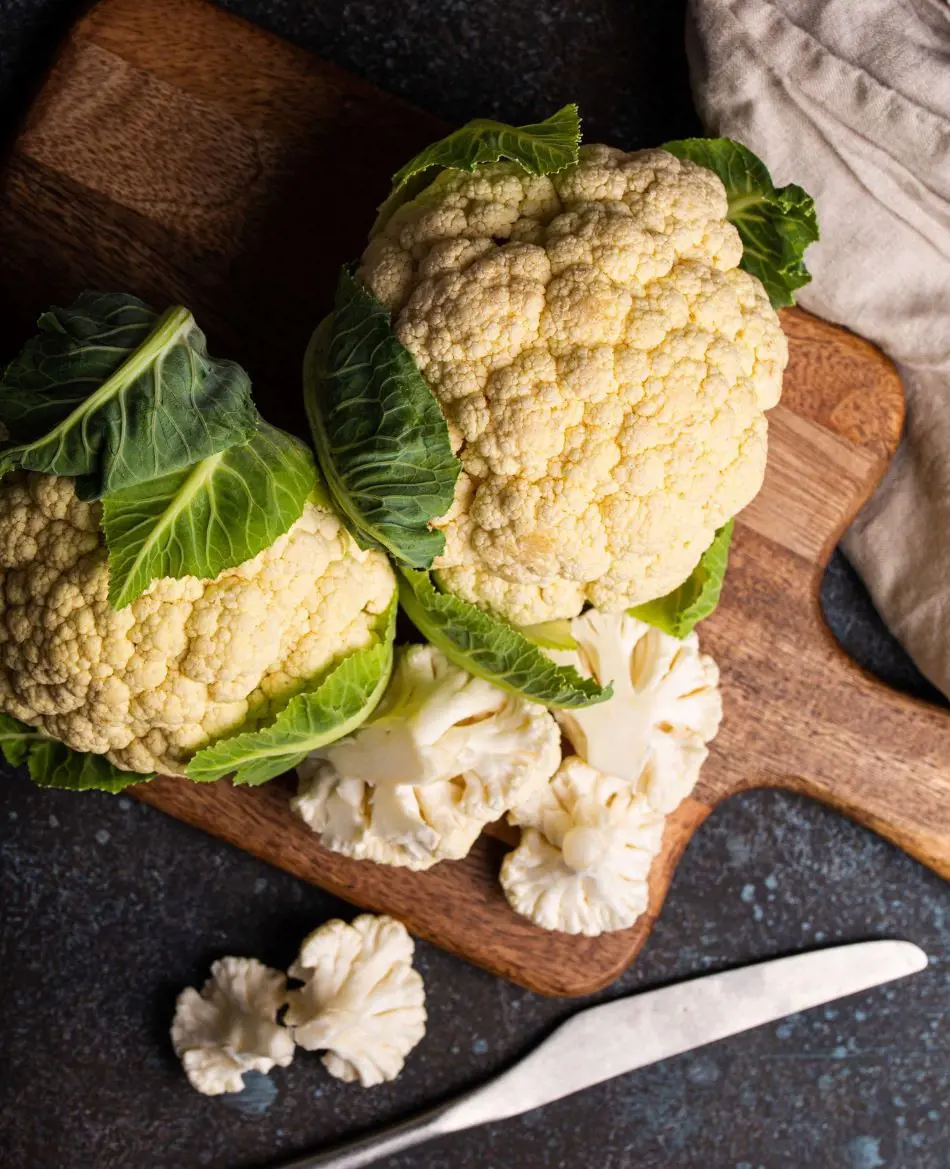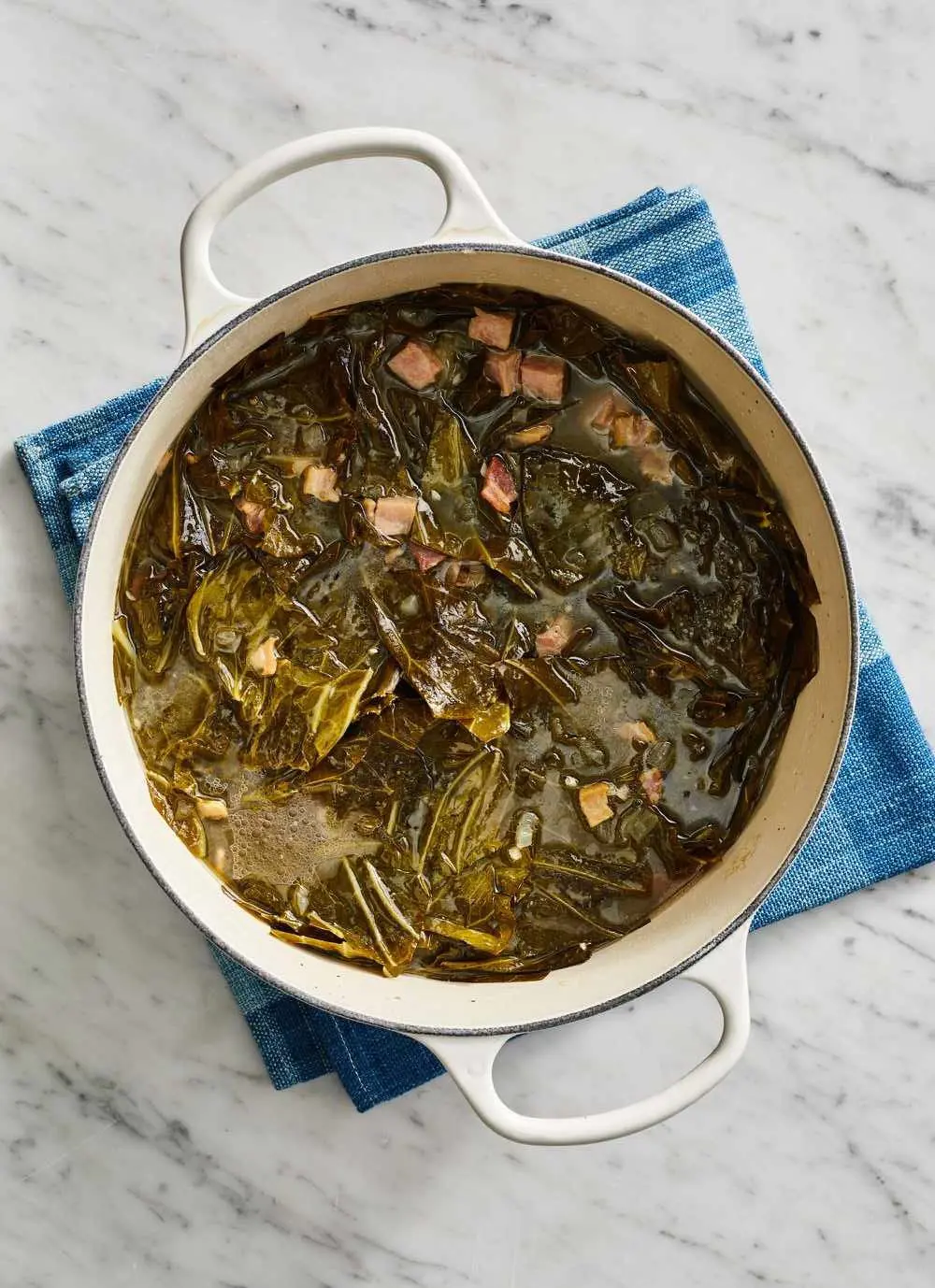15 Benefits and Uses of Holy Basil
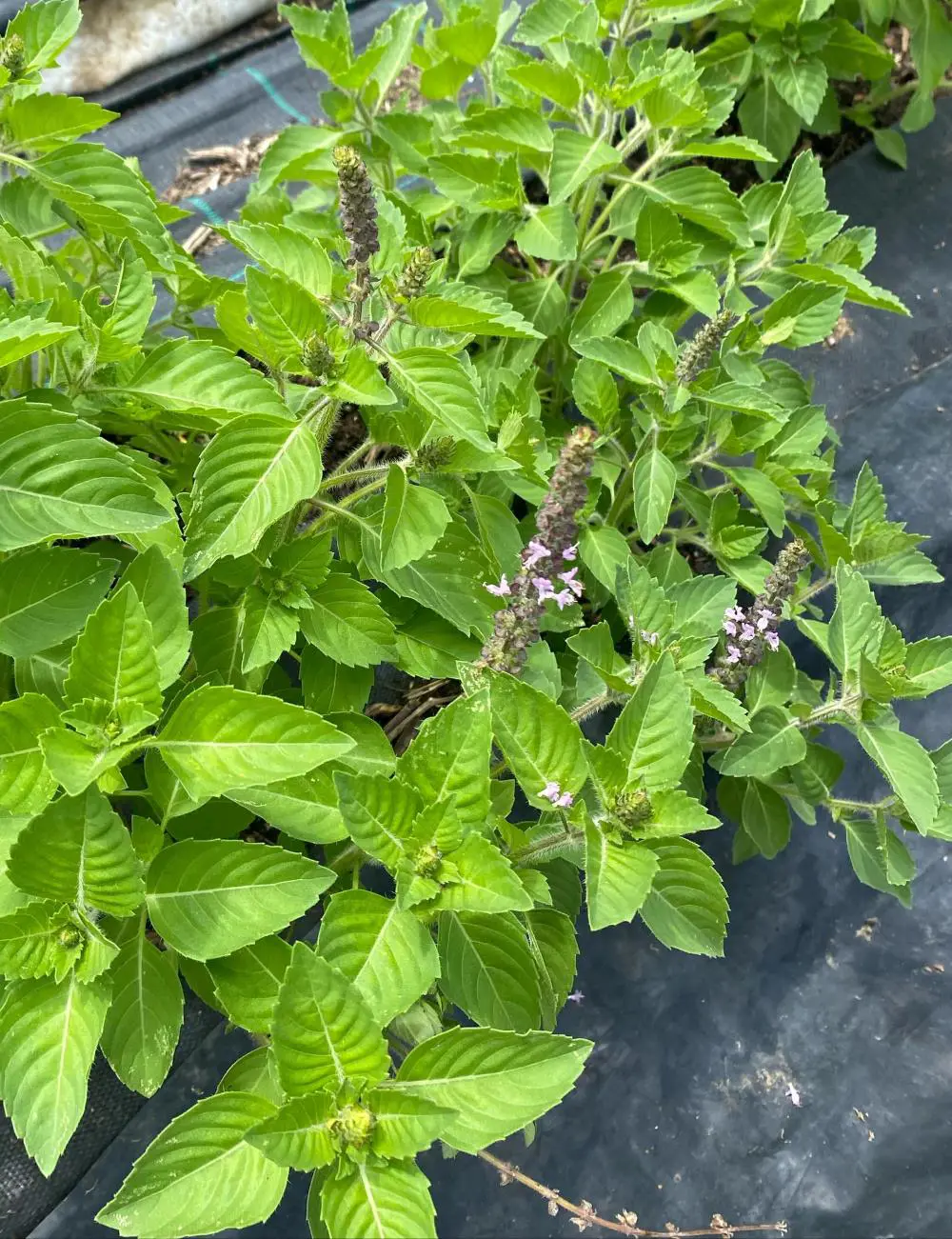
Holy basil, also known as Tulsi (Ocimum tenuiflorum), is an aromatic perennial plant native to the Indian subcontinent. It holds a significant place in Ayurveda, where it is revered for its medicinal properties and spiritual significance. Holy basil is known for its adaptogenic properties, helping the body manage stress and maintain balance.
It is rich in antioxidants and exhibits anti-inflammatory, antimicrobial, and immune-boosting effects. In Hindu culture, Tulsi is considered sacred and is often grown in homes and temples for its purifying and protective qualities. Now, let's explore the 15 holy basil benefits and its uses.
1. Heart Health
Holy basil is among the best heart-healthy foods. Its antioxidant properties help reduce oxidative stress and inflammation, both contributors to cardiovascular disease risk. Tulsi also promotes heart health by lowering cholesterol and triglyceride levels in the blood, thereby improving lipid profiles.
Additionally, it aids in regulating blood pressure by relaxing blood vessels, which can reduce hypertension. Its adaptogenic properties support overall cardiovascular resilience by helping manage stress, crucial for heart health.
Research indicates that regular consumption of Tulsi tea or extracts may enhance heart function and lower the risk of heart disease.
2. Reduce Stress and Anxiety

All parts of the holy basil plant act as adaptogens, helping the body adapt to stress by normalizing physiological processes and promoting balance. Tulsi contains compounds such as eugenol and ocimumosides that have calming effects on the nervous system, reducing anxiety and improving mental clarity.
It also regulates cortisol levels, the hormone associated with stress, thereby mitigating its harmful effects on the body.
Regular consumption of Tulsi tea or supplements has been shown to enhance resilience to stressors, elevate mood, and induce relaxation. Its antioxidant properties also protect the brain from oxidative stress associated with anxiety and cognitive decline.
3. Immune Support
Holy basil might pack a double punch for your immune system. It contains vitamin C and zinc, which are well-known defenders against infections. But holy basil goes beyond that. Certain compounds in the herb, like eugenol, have antibacterial, antiviral, and antifungal properties.
These properties can help fight off various germs and may even reduce inflammation, which can hinder your body's natural defenses. Studies suggest it might even increase the activity of immune cells, further strengthening your body's defenses.
While research is ongoing, holy basil shows promise as a natural way to support a healthy immune system.
4. Respiratory Health

Holy basil acts as an expectorant, helping to expel mucus from the airways and alleviate congestion. Tulsi's antimicrobial properties combat respiratory infections caused by bacteria, viruses, and fungi, thereby reducing the severity and duration of illnesses like colds, flu, and bronchitis.
It also has anti-inflammatory effects that can ease inflammation in the respiratory tract, making breathing easier and more comfortable. Tulsi's antioxidant compounds protect lung tissues from oxidative damage caused by pollutants and toxins.
Overall, holy basil shows potential as a natural way to support healthy respiratory function.
5. Blood Sugar Regulation
If you're managing prediabetes or type 2 diabetes, all parts of the holy basil plant offer potential benefits for regulating your blood sugar. Research, both in animals and humans, indicates that holy basil can help prevent diabetes-related issues like high cholesterol, insulin resistance, weight gain, hyperinsulinemia, and hypertension.
Tulsi contains compounds like eugenol, which enhance glucose uptake and utilization in cells, thereby lowering blood glucose levels. It also inhibits the activity of certain enzymes involved in carbohydrate metabolism, slowing down the conversion of starches into sugars.
It's wise to consult your doctor before adding holy basil to your diet, especially if you're already using medications to manage blood sugar as it may enhance their effects.
6. Digestive Aid
Holy basil supports digestive health through several mechanisms. It helps stimulate the appetite and promotes proper digestion by enhancing the secretion of digestive enzymes. Tulsi's carminative properties aid in the expulsion of gas from the digestive tract, reducing bloating and discomfort.
It also has anti-inflammatory effects that can soothe digestive inflammation and alleviate symptoms of conditions like irritable bowel syndrome (IBS). Tulsi's antimicrobial properties help combat pathogens that can cause digestive infections, promoting overall gastrointestinal health.
7. Skin Health

Tulsi improves skin health with its potent antioxidant and antimicrobial properties. These qualities help protect the skin from oxidative stress caused by free radicals, which can cause premature aging and skin damage.
Its antioxidants also foster cell repair and regeneration, promoting a radiant complexion and reducing the appearance of wrinkles and fine lines.
The plant's antimicrobial effects fight acne-causing bacteria, making it useful for preventing and managing breakouts. Furthermore, its anti-inflammatory properties can alleviate skin irritations and conditions such as eczema and psoriasis.
8. Protect Against Infection and Treat Wounds
Extracts derived from its leaves are believed to accelerate and enhance the healing of wounds. Known for its antibacterial, antiviral, antifungal, anti-inflammatory, and pain-relieving properties, holy basil is sometimes used by individuals post-surgery to aid in the healing and protection of wounds.
It is said to improve the breaking strength, healing duration, and contraction of wounds. Breaking strength refers to the amount of pressure or weight a wound can withstand before breaking.
Studies suggest that holy basil may combat infections and aid in healing conditions like mouth ulcers, keloids, hypertrophic scars, and acne.
9. Oral Health

Holy basil shines in oral health due to its possible multi-pronged attack:
- Antimicrobial Powerhouse: The herb boasts compounds that might fight bacteria linked to bad breath and gum disease.
- Anti-inflammatory Champion: It may reduce inflammation in gums, a factor in gum problems.
- Freshening Breath: Some studies suggest holy basil's properties could help combat bad breath.
- Wound Healing Potential: Early research indicates it might promote wound healing, potentially aiding mouth ulcers.
While more studies are needed, holy basil shows promise as a natural way to support a healthy mouth. Remember, it shouldn't replace regular brushing and flossing.
10. Anti-Cancer Potential

Holy basil shows promising anti-cancer potential due to its rich phytochemical composition. Studies indicate that Tulsi extracts exhibit cytotoxic effects on cancer cells, inhibiting their growth and promoting apoptosis (programmed cell death). Tulsi's antioxidants, such as eugenol, protect cells from oxidative damage that can contribute to cancer development.
Tulsi influences signaling pathways involved in cancer progression and metastasis, potentially limiting the spread of cancerous cells. Its anti-inflammatory properties also play a role in its anti-cancer effects by reducing chronic inflammation, a known risk factor for cancer.
While further research is necessary to fully understand Tulsi's mechanisms against cancer, initial studies suggest its potential as a natural supplement for cancer prevention and as an adjunct therapy.
11. Mental Clarity and Cognitive Function
The plant contains compounds such as eugenol and ocimumosides, which exert neuroprotective effects that enhance memory and concentration. Tulsi's adaptogenic properties assist in managing stress by reducing cortisol levels which can hinder cognitive function.
It also improves cerebral circulation, facilitating better oxygenation and nutrient delivery to the brain, thereby supporting cognitive processes. Its antioxidant properties protect brain cells from oxidative stress, which is associated with cognitive decline and age-related memory loss.
Regular consumption of Tulsi tea or supplements can help sharpen focus, enhance mental alertness, and support overall cognitive health.
12. Ease Inflammation and Joint Pain
Imagine experiencing relief from stress, anxiety, and inflammation simply by enjoying a comforting cup of tea made from holy basil leaves. As an adaptogen rich in antioxidants and possessing anti-inflammatory properties, holy basil provides these benefits and beyond.
It has been noted to potentially aid individuals managing arthritis or fibromyalgia. The antioxidants in Tulsi play a vital role in neutralizing free radicals that exacerbate inflammation and contribute to joint damage.
Moreover, Tulsi's analgesic properties may alleviate pain associated with inflammation, offering relief without the usual side effects of conventional pain medications.
13. Liver Health
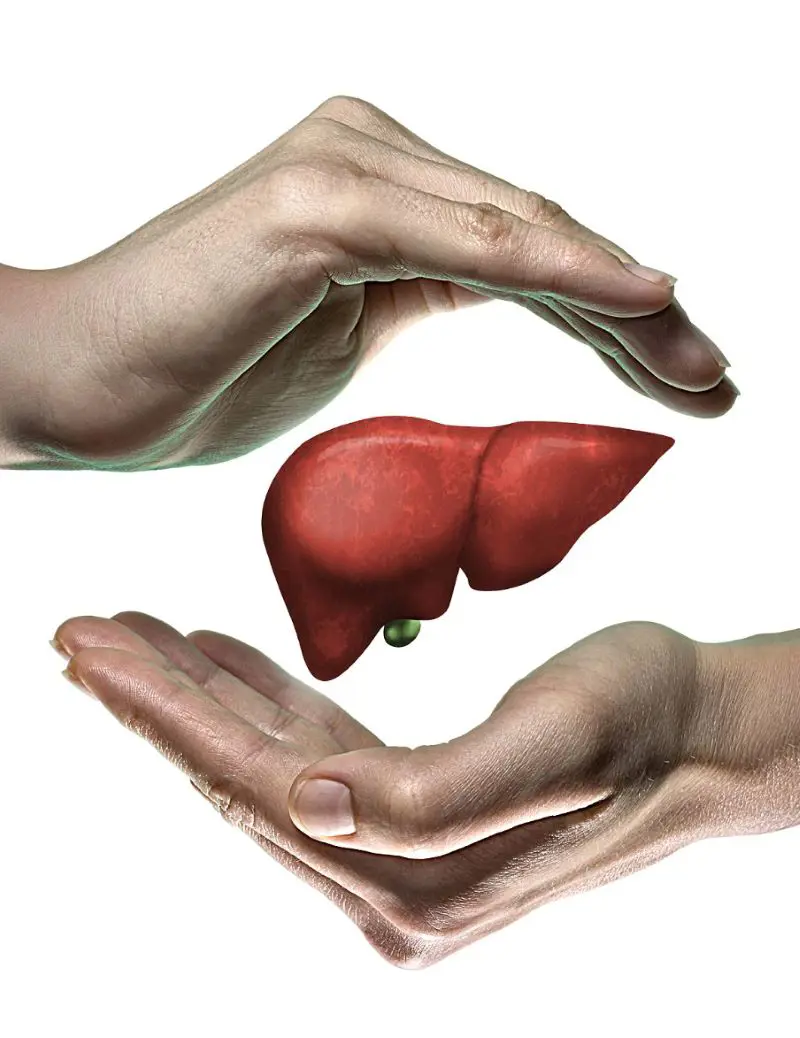
Holy basil holds promise for liver health due to its potential detoxifying and protective properties. Compounds like eugenol may act as antioxidants, fighting free radicals that can damage liver cells. Some studies suggest it might improve liver function by supporting enzyme activity involved in detoxification.
Furthermore, holy basil's anti-inflammatory effects could be beneficial for conditions like fatty liver disease, which involve inflammation. While research is ongoing, holy basil shows promise as a natural way to support a healthy liver, but it shouldn't replace consulting a healthcare professional for liver concerns.
14. Antipyretic Properties
Traditionally, holy basil has been used for its antipyretic properties, meaning it may help reduce fever. This property is attributed to compounds like eugenol and flavonoids present in its leaves. Eugenol acts as a natural analgesic with mild cooling effects, which can aid in lowering body temperature during fevers.
The plant's ability to regulate immune responses and reduce inflammation contributes to its antipyretic effects. By bolstering the immune system and mitigating inflammatory mediators, Tulsi supports the body in combating infections that often induce fever.
Traditional uses of Tulsi include its application in treating fevers and its inclusion in herbal formulations aimed at reducing fever symptoms.
15. Eye Health

As people grow older, the macula, a part of the eye, starts to deteriorate. Research suggests that including foods rich in zeaxanthin and lutein in your diet can decrease the risk of age-related macular degeneration by 40%.
Holy basil contains beta-carotene, cryptoxanthin, lutein, and zeaxanthin, which help combat free radicals and support eye health.
Additionally, antioxidants like vitamin A, vitamin C, and various flavonoids found in Tulsi protect the eyes from oxidative stress caused by free radicals. These antioxidants also support the health of the retina and other structures within the eye by neutralizing damaging molecules.
Holy Basil Uses
This leafy green plant is revered as a tonic for overall well-being, addressing the body, mind, and spirit. Different parts of the plant are prescribed for treating various conditions. Here are its applications:
- Fresh flowers are used for bronchitis treatment.
- Essential oil extracted from the leaves is applied to insect bites.
- The entire plant is used to alleviate diarrhea, nausea, and vomiting.
- Leaves and seeds, often combined with black pepper, are employed for malaria.
- Pills and ointments derived from the plant are used for treating eczema.
- Tea made from the leaves is consumed for its calming and stress-relieving properties.
- Chewing the leaves is believed to aid in oral hygiene and freshen breath.
Holy Basil Possible Side Effects
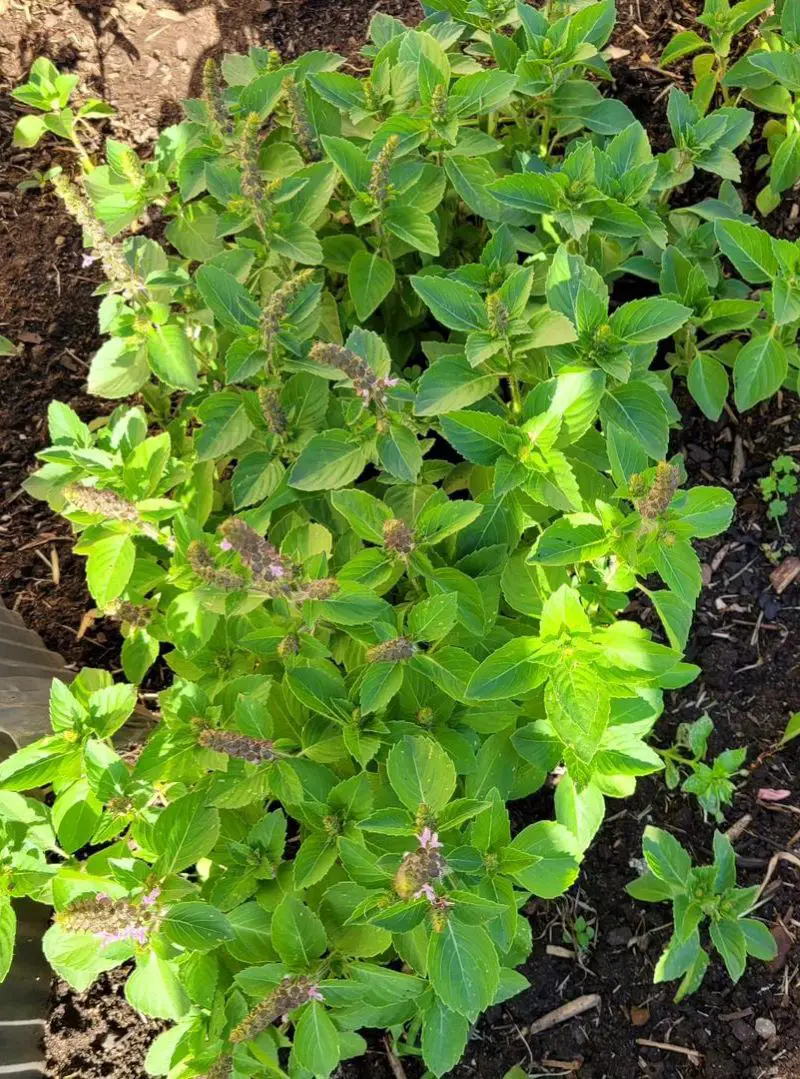
Based on the trials and studies conducted so far, Tulsi shows promise; however, uncertainties remain regarding its optimal daily use and specific benefits for different individuals. Moreover, potential negative side effects are not fully understood. Further research, particularly in human clinical trials, is necessary.
If you choose to incorporate Tulsi into your diet, it is advisable to stick to consuming holy basil tea or growing the herb organically at home. When purchasing holy basil, opt for organically grown varieties sourced from reputable suppliers in rural, unpolluted environments. Holy basil cultivated in polluted areas may contain higher levels of toxins.
If considering other forms such as Tulsi supplements, consult your healthcare provider beforehand, and avoid these supplements entirely if you are pregnant or breastfeeding.
Recent posts
Nutrition
Nutrition
Licorice Root: Benefits And Uses
You can spell it liquorice or licorice; this herb or root has been in use for centuries in most medicinal applications, as a natural sweetener and to enhance flavors. Regarding its origins, it comes from the root of the "Glycyrrhiza galbre" plant and...
Nutrition
Is Salmon Good For You? Nutritional Facts and Benefits
Salmon fish is a staple diet throughout the world, popular as a super food for its nutrients. Whether savored in sushi, poached, grilled, roasted, or pan-fried, salmon offers minerals and vitamins that contribute to healthy bodily functions. In addit...
Nutrition
25 Smoked Salmon Recipes That You Will Enjoy
Salmon is a silver-colored fish that is loaded with many nutrients, vitamins, and omega-3 fatty acids. Smoked Salmon is better for improving your health and reducing the risk of cancer, heart-related diseases, fights inflammation, reduces anxiety and...
Nutrition
Are Sausages Healthy? Nutrition And Health Benefits
Sausages are tasty in an addictive way, making them one of the most popular foods worldwide. You may have enjoyed this convenient food often, whether on a bun with mustard or grilled on a barbecue, the simple preparation methods are what makes its co...
Nutrition
20 Vegetables That Are Rich In Iron
Iron is essential for our bodies to function well. When we don't get enough iron, we often feel weak and tired. It's important to address iron deficiency early by eating the right foods. Fortunately, many vegetables are rich in iron and can help prev...
Nutrition
15 Cauliflower Nutrition Facts And Health Benefits
Cauliflower, a cruciferous vegetable, resembles a white variation of its relative, broccoli. Like broccoli, it has closely bunched florets attached to a thick core, often surrounded by a few leaves. While white is the most common color, cauliflower i...





